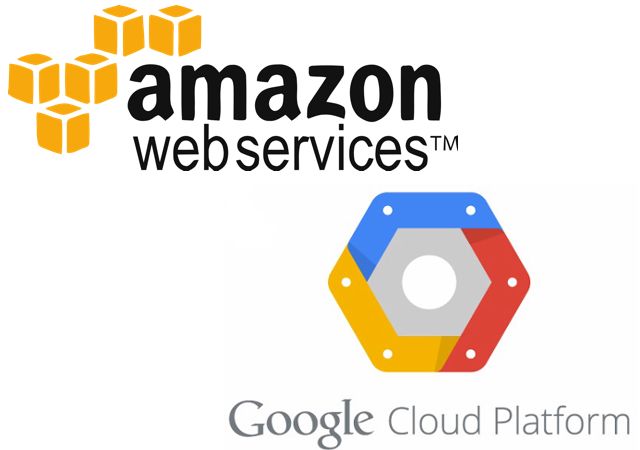At the end of last year, there were over 3.9 million jobs in the cloud computing field in America alone—and over 18 million around the world. And professionals with cloud computing experience took home a median salary of over $90,000.
It's a great field to get into — but what skills do you need for a job in cloud computing? Any expertise in these 9 areas will help set you apart from the rest of the application pile.
Database Skills
Because cloud computing so often deals with large databases of information, being able to understand and work with database languages is crucial. SQL and MySQL are the de facto standard languages for databases, but being familiar with open-source systems like Hadoop, Cassandra, and MongoDB is also helpful.
If you're looking for a more fun way to learn some database skills, you can check out Schemaverse, a space-based strategy game in which players use SQL commands to control their fleets. GalaXQL is another great resource for learning to work with databases — the interactive app lets you practice your SQL queries and guides you along the way.
Learn to Program
Ruby, Ruby on Rails, Python, Perl, JavaScript, and Java are the most common languages used for building cloud-based applications and services. While Java is a relatively traditional programming language, the others are high-level, efficient languages that are often recommended for beginners, making this a good first step in improving your cloud computing skills.
While some jobs only require one of these languages, you'll increase your employability by being familiar with more than one. Yes, familiarize yourself with the many interactive coding lessons available online. Pick one of the languages and start learning!
Linux
The Linux operating system dominates a large portion of the cloud computing world, so being familiar with it will give you a big headstart on many of your potential competitors. A good first step is to set up your computer to dual-boot with your preferred operating system (we have tutorials for dual-booting Windows as well as OS X).
After that, start learning! Check out the five golden rules of Linux, learn some interesting commands, and start working with Linux alternatives to your go-to software. The more familiar you are with the operating system, the better.
DevOps
Development operations is a particular method of software development that takes the entire software lifecycle into account, from planning and prototyping to use and maintenance. DevOps is very popular in cloud computing, so understanding what it is and how you fit into it can be a big help.
You can start learning about DevOps by going to DevOps.com and reading their articles to get an idea of the sorts of issues at stake. Microsoft Virtual Academy provides an overview of DevOps, and Linux academy has a short DevOps course that will be helpful, as well.
Systems Automation
As companies are storing and using more and more information all the time, working with it manually and on a project-to-project basis is becoming unsustainable. Developers who can automate tasks and processes are highly valuable, as they can significantly improve the efficiency of a company's interactions with data.
While "automation" is a relatively vague term, you can gain skills in this area by learning about Puppet and Chef, two open-source automation solutions.
Puppet Labs [No longer available] offers a range of learning options, from live courses and certifications to self-paced online learning. It is also cross-platform.
Chef is another systems and cloud infrastructure automation tool with a number of interactive learning modules.
Quality Assurance
According to a 2014 survey by Forbes, software quality assurance was the sixth-most common request in cloud computing job postings. In short, software QA is the process by which developers and other producers make sure that the software they produce meets the needs that it sets out to and that it's of acceptable quality upon release.
You can start learning about quality assurance with the Foundations of Programming: Software Quality Assurance course on Lynda.com. Udemy also has a number of courses available, including Learn Software Testing: Kickstart a Successful Career in QA and Learn Software Testing from Scratch. There are also plenty of online certifications that you can get to improve your résumé for cloud computing.
Information Security
The Certified Information Systems Security Professional (CISSP) certification is one of the most requested certifications in the cloud computing world. This certification is bestowed by International Information System Security Certification Consortium, Inc, and the exam covers knowledge on things like asset security, identity and access management, and software development security.
There are plenty of great resources to help you learn about information security, from free introductions to information security to a Udemy course on security concepts and an extensive Open University course on the topic.
Project Management
The Project Management Professional certification is highly recognized and respected within the industry. If you have a few years of experience in project management, you may be eligible for this certification; if not, you may be eligible for the Certified Associate in Project Management certification.
To find out more about the PMP certification, you can visit the Project Management Institute website and read about their various certifications. There are also a number of other certifications that may be of interest, such as one in program management, and another in business analysis.
Amazon and Google Cloud Skills
Being familiar with specific vendors of cloud solutions can be a big help if a potential employer already works with those companies. Because Amazon and Google cloud platforms are so popular (even the NSA uses Amazon Web Services), having some familiarity with these technologies can give you a boost in the hiring process.
Amazon Web Services - Web Hosting & Cloud Computing With AWS is a Udemy course that will help you become more familiar with Amazon's technologies. Google provides its own Google Cloud platform training that you can go through for free. It has also co-opted many training partners worldwide.
Take on a project that requires you to use either of these is a great way to fast track your learning. Try GitHub for some inspiration.
Rackspace is quickly becoming a major competitor in the cloud scene as well, so any experience you have with their platform could also be beneficial. The cloud company also runs the Open Cloud Academy to help with cloud skills training and meet the skills gap.
Online Courses for Cloud Computing
In addition to the resources above, you can take advantage of a wide range of online courses that will help you build your cloud computing skills. Here are a few to get you started:
- edX Introduction to Cloud Computing (free): the basics of cloud computing, including security, usage scenarios, and infrastructure basics.
- Cloud Academy ($29 or $59 per month): learn everything from basic database management to advanced platform-specific skills.
- Cloud Computing Platform as a Service from University of California, Irvine ($650): a course with a focus on creating cloud-based solutions using Amazon, Google, and Microsoft technologies.
- Cloud School (varies): with 21 different modules covering everything from the basic to the very advanced, Cloud School will help you go from being a complete beginner to a highly employable expert.
The Future Is in the Cloud
Many businesses are quickly transitioning a lot of their computing and data storage to the cloud, and there's a big need for developers and other technical employees to help them with the process. Whether you're a cloud expert or a total beginner, this is a great field to get into. Start polishing your skills!
Do you work in cloud computing? What other skills do you find useful in your day-to-day experience? Share your thoughts below!
Image Credits: cv resume Via Shutterstock, Businesswoman drawing database structure (edited), Businessman with gears (edited), Padlock and keyhole (edited) via Shutterstock.






